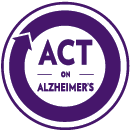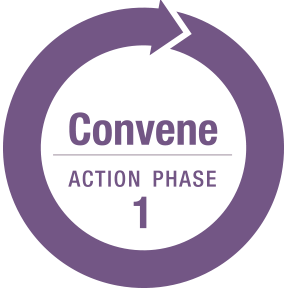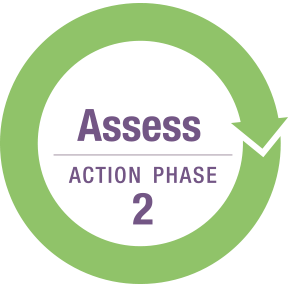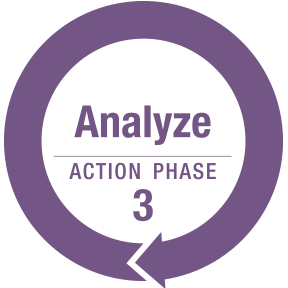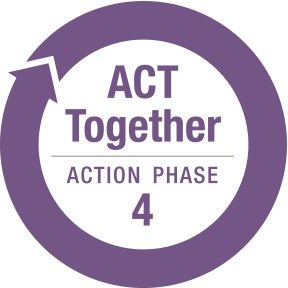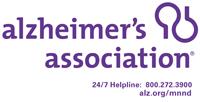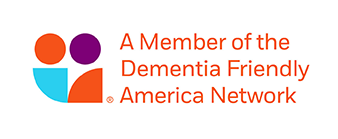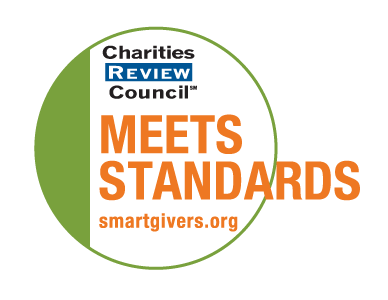Assess current community strengths and gaps concerning dementia using questionnaires in the toolkit. This phase consists of five key steps.
Step 1: Understand Assessment Sectors
Review the full Community Needs Assessment to understand the key aspects of a dementia-friendly community. The community assessment has 11 sector-based questionnaires for interviewing representatives from various parts of the community.
Determine whether all 11 sectors are reasonable or appropriate for your team to interview. Realistically, your team may have limited capacity, knowledge, or connections to complete the full assessment, but that is the ideal goal. Review the first page of each sector questionnaire to understand who should be interviewed.
Tools for Step 1
Step 2: Form a Community Assessment/Interview Team
A community assessment/interview team has a Team Lead (job description), Team Members (job description) who will conduct in-person interviews using the sector questionnaires, and a person to enter interview results into the Analyze tools.
Step 3: Hold an Interview Team Training Session
The interview team training is divided into two sessions. The first session acquaints team members with the Assess phase and the interviews. The facilitator demonstrates how to prepare for and conduct an interview using ACT on Alzheimer's resources.
At the end of session one, each team member practices an interview with someone they know. Session two opens with a debriefing of the completed interviews, focusing on lessons learned and resources used. During this session, the team establishes the process they will follow as they conduct the community assessment. At the end of session two, each team member will select up to five interviews to complete.
Tools for Step 3
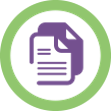
Interview Team Training Plan
Interview Team Training - Session 1 Agenda
Interview Team Training - Session 2 Agenda
Sector Chart / Work Sheet
Pre-Interview Email
Call Script
Sector-based questionnaires (see above)
Is Your Community Prepared? flyer
Know the 10 Signs Infographic
Community Resource Brochure/Flyer: Template
Step 4: Establish a Process Flow and Timeline
Decide how completed questionnaires will be collected (email, drop off, etc.) and how team members will obtain new ones. Determine how you will keep the Team Lead informed about the interviews and people you are interviewing to avoid duplicate contacts.
As questionnaires are completed, enter data into the Phase 3 Analyze tools now rather than entering all the data later. See Phase 3 for instructions on inputting data.
Have the community assessment/interview team meet every two weeks to keep the project on track and review progress. Finish the assessment process and the data entry in three months or less to maintain momentum and the team’s enthusiasm for determining priorities.
Communications Tips

Be sensitive to cultural and language differences when preparing to conduct interviews. Case in point: Latino older adults are proportionately more likely than older whites to have Alzheimer’s, and there are few resources available in Spanish.
Step 5: Conduct the Interviews
The community assessment/interview Team Lead works with team members to determine who will interview which sectors. Encourage team members to interview a sector in which they have a personal contact or connection.
Have team members decide if they will complete interviews individually or work in pairs (one person conducts the interview; the other records the responses).
Team members contact interviewees using the Pre-Interview Email or Call Script and schedule a time to meet. When doing the interview, explain that responses will be compiled and shared at a community meeting. Tell interviewees to expect a meeting invitation.
Communications Tips

Let interviewees know about the Alzheimer’s Association diversity portals where community members can access information in multiple languages.
Send a personal thank you note after the interview to strengthen connections for future needs and actions.
Tools for Step 5
Step 6: Conduct a Focus Group or Community Conversation (optional)
Consider holding a focus group or community conversation with community members living with dementia and their family caregivers. Use the findings to supplement results of the sector interviews.
Tools for Step 6
Would you like to learn from the experience of others?
More than 60 communities have used the Dementia Friendly Toolkit in their communities and have completed evaluations. We are happy to make them available to you upon request.
The Dementia-Friendly Communities Toolkit is informed by research and is flexible and adaptable to a community’s needs. The University of Minnesota Extension Center for Community Vitality was a key resources for creating the toolkit and continues to be a valuable source for information and support.
The ACT on Alzheimer's® Dementia Friendly Communities Toolkit, provider practice tools, dementia training, and related resources may be reproduced, adapted, or both when these restrictions are followed:
- Acknowledgment of ACT on Alzheimer's must appear in print and online. Use this citation: Reproduced (or Adapted) from ACT on Alzheimer's® developed tools and resources.
- ACT on Alzheimer's® developed tools and resources cannot be sold in their original form or in a modified/adapted form.

